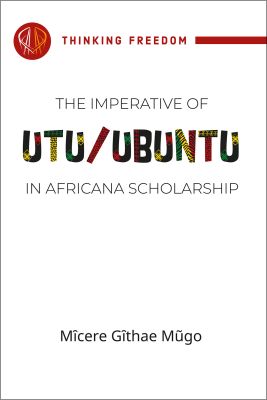Written in commemoration of the 50th anniversary of Africana Studies and Research Center, Cornell University, this publication celebrates the birth of Black studies as a liberated academic zone. Professor Mugo reflects upon the significance of Africana studies, specifically within the context of America's predominantly White universities, revisiting the hers/his/torical context that birthed Black studies as a field of knowledge. She reflects on the ownership of knowledge, its production, dissemination and custodianship while proposing utu/ubuntu as imperatives in defining transformative education. The hypothesis and heart of the argument is that knowledge and scholarship can either be colonizing, alienating and enslaving; or, alternatively, they can be conscientizing, humanizing and liberating, creating new human beings with the agency to transform life and the world, for the better. The latter constitutes what Professor Mugo calls utu/ubuntu rooted-scholarship which, she argues, should define Africana studies, research and scholarship, all of which needs to have both a mind and heart. This should be the mission and vision that led to the birth of Black Studies as an academic. She dismisses the false myth of dominating, colonizing and imperialist cultures that claim to have a monopoly of knowledge and whose purpose is to justify the dehumanization of the conquered, the attempted erasure of their knowledges, heritages and ultimately, entire cultures. The essay urges us to reflect on a number of critical questions: What is the objective of Africana research and general search for knowledge? In whose service are teaching, research work and publications by Africana scholars? Do their conference papers bring any Africana knowledge systems to the round table of ideas? Is the knowledge they produce liberating and humanizing, or for the advancement of careerist ambitions? What does Black scholarship contribute towards what Paulo Freire called the 'dialogical education for problem solving'?

